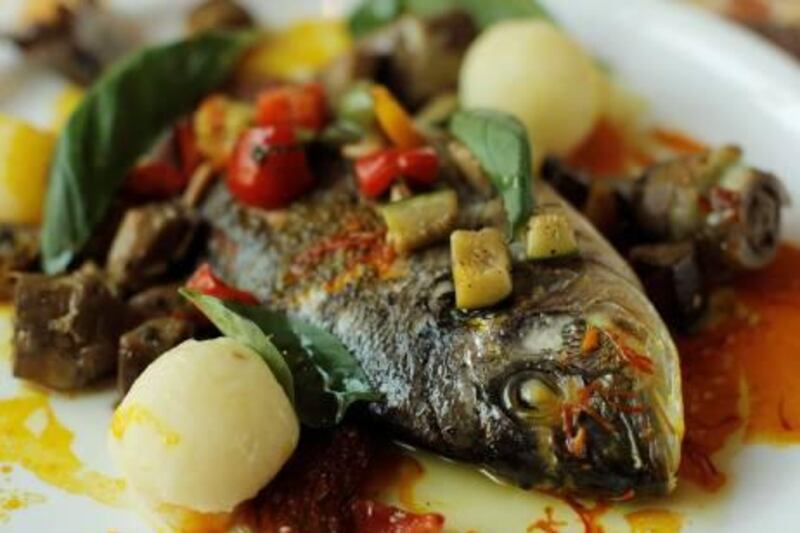ABU DHABI // The UAE's first sustainable seafood guide has been expanded by three species, offering more choices for consumers who want to help preserve fish stocks.
The booklet was launched in April 2010 year and reviewed 19 species commonly fished for.
It is part of "Choose Wisely", a consumer campaign by the Emirates Wildlife Society - World Wide Fund for Nature (EWS-WWF).
___________
[ EDITORIAL: Delicious endangered ]
___________
The booklet lists fish species in three categories — green, orange and red. These signify species that are ethical choices, those allowed in moderation and those to avoid.
In the UAE, 60 per cent of the total catch is made up of species fished beyond sustainable levels.
The latest edition of the guide contains two more entries to the green category, bringing the total sustainable options to nine, and one to the orange section.
The two new "green" species are yellow fin seabream, known in Arabic as shaam, and blackspotted rubberlip, also called hilali.
Diners who eat these will help relieve pressure on some of the country's most popular and severely overfished species, such as hammour, also known as orange-spotted grouper.
"By choosing sustainable options and reducing the demand on overfished species, we can alleviate some of the pressure on these species and contribute towards the conservation of our marine environment," said Darren Hiltz, conservation officer at EWS-WWF.
Also on the green list are Ehrenberg's snapper, sordid sweetlips, pink-ear emperor, yellow-bar angelfish, black-streaked monocle bream, two-bar seabream and orange-spotted trevally.
Besides hammour, which is so popular it is considered a staple food, seven species need to be avoided altogether.
These include golden trevally (zuraidi), snubnose emperor (yemah), spangled emperor (shaari), white-spotted spinefoot (safi arabi), goldlined seabream (qabit), kingfish (kanaad) and painted sweetlips (fersh).
Numbers of those species have declined on average by 80 per cent or more between 1978 and 2001-2002, when the Environment Agency - Abu Dhabi (EAD) carried out its most detailed survey.
The message reaches consumers at the start of Ramadan, which the environmentalists behind the report said was deliberate.
"Ramadan is one of the most important times of the year, when family and friends gather to break their fast and reflect on what is important.
"With spirituality at the core of Ramadan, we also want people to think about our environment and natural habitat.
"By cooking sustainable recipes at a time of sharing, residents can help spread positive messages for change by making educated decisions," Mr Hiltz said.
The guide's expansion also includes a fish species that people are allowed to eat in moderation - the blue-spot mullet, known in Arabic as beyah arabi.
Pictures of all the fish species and more advice on sustainable seafood choices are available at the campaign's website, www.choosewisely.ae.





